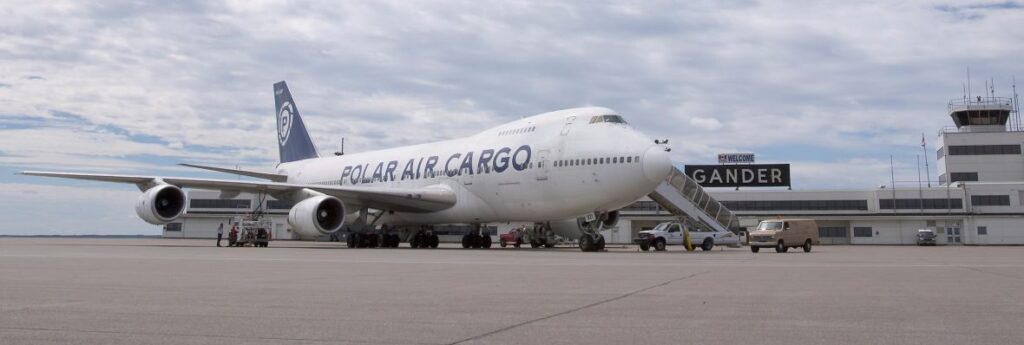To say the aviation industry in Gander has taken a hit during the COVID-19 pandemic would be an understatement. Since the pandemic took hold last March, the central Newfoundland town has seen airlines pull out of the Gander International Airport, followed by considerable job losses.
At peak times, the airport sees flights from various parts of Canada and the world.
In late January, the town reported that the aviation sector in Gander had seen 290 jobs lost, which accounts for $25 million in lost wages for people in the town and the surrounding area.
“Aviation is Gander, and Gander is aviation. If we are going to push through these headwinds, we need to balance health and economic recovery,” wrote Gander and Area Chamber of Commerce first vice-chairperson Hannah de Young in a release from the chamber. “If anything, the situation is more dire now than it was 11 months ago. Support for the aviation industry is central to economic recovery and regional growth for all business sectors.”
Gander relies heavily on aviation and aerospace as a driver of its economy. On average, one in five workers in the community is employed in those industries and they account for up to $400 million in direct and indirect economic output annually.
There are spin-off job losses, as well. Numerous jobs not directly part of the aviation industry, but depend on it to some extent, have been lost or negatively impacted.
“With fewer passengers, you sell less coffees, you rent fewer cars, you handle less luggage, and so on,” said Gander International Airport president and CEP Reg Wright. “COVID-19 and the accompanying travel restrictions have killed demand.
“When bookings die, you can expect routes, jobs, airlines and airports to die with it. Our town is generally economically resilient, but these things become a mortal threat when your community depends on a dynamic aviation ecosystem.”
Recently, the Canadian Air Traffic Control Association warned of public safety concerns at the House of Commons transport committee in Ottawa. In December, the association reports, there were more than 100 air traffic controllers who received layoff notices from several airports, including Gander.
The association anticipates the subsequent shortage of air traffic controllers will hit as high as 20 percent by June of this year.
The parties involved, especially in Gander, are looking for the federal government to make a concentrated effort to put its support behind the aviation and aerospace industries.
“It’s been (almost a year) since this all began, and there is still no tailored sector support from the federal or provincial governments for this hardest hit of industries,” said Gander Mayor Percy Farwell.
RELATED ARTICLE: A critical issue

